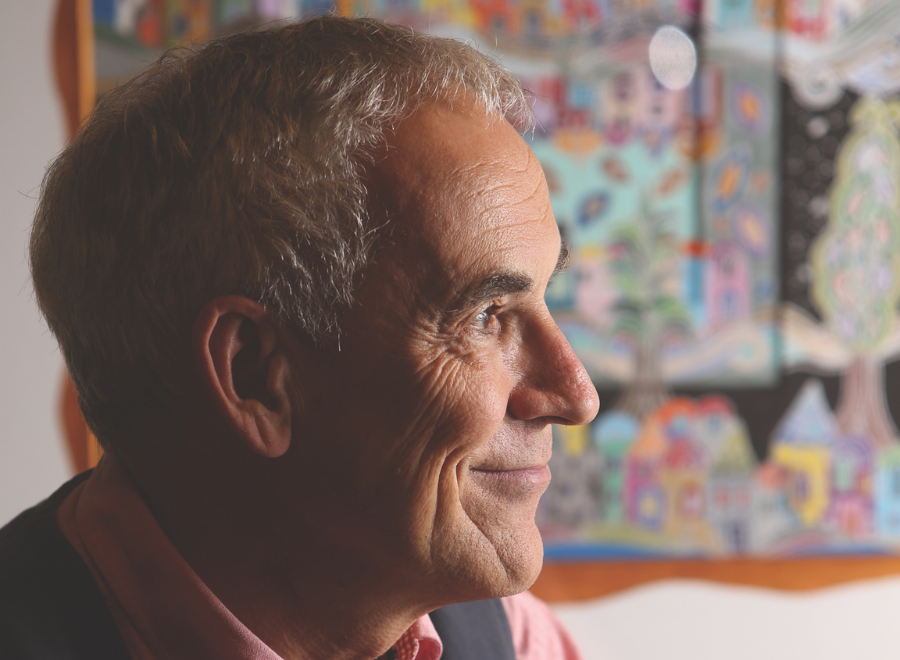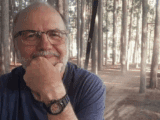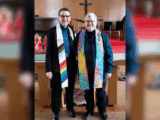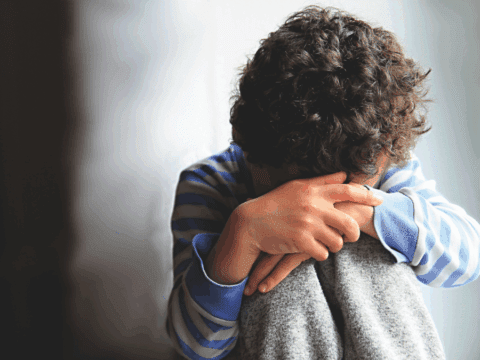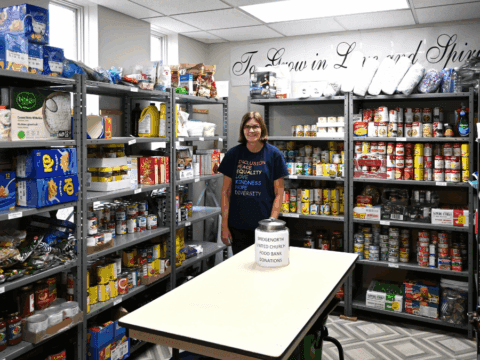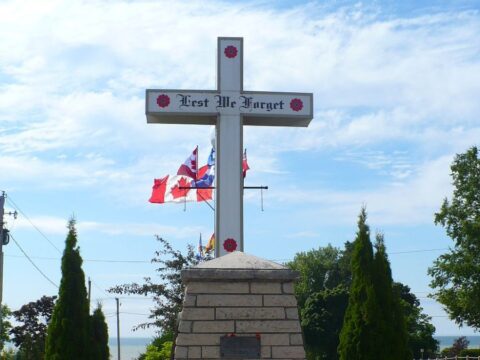Moderator Rt. Rev. Gary Paterson has written about his personal opinions on physician-assisted suicide. Now, he’s talking to The Observer. He spoke to Chelsea Temple Jones in Toronto.
Chelsea Temple Jones: Last fall, as the Supreme Court began its deliberations on whether to lift a national ban on doctor-assisted suicide, you posted a blog about your personal thoughts on the issue. Why did you decide to write about physician-assisted dying?
You may unsubscribe from any of our newsletters at any time.
Gary Paterson: I chose the blog form very deliberately to make a personal statement. I don’t make pronouncements on behalf of the United Church, and we don’t actually have a standing policy on doctor-assisted suicide. I think this is an incredibly important issue on the hearts of many Canadians. And so I think it’s important for the church to be involved in public discussions that involve ethical and moral decision-making, and to host a conversation that can actually go to some depth. In the past, we sometimes thought that what the church said would dictate policy. Those times are past, and I think that’s a good thing. On the other hand, because of secularization, sometimes it’s been said that the church should not speak up on public issues. I wanted the public to know the particularity of the United Church voice, which I think is often more nuanced [than that of other denominations].
CTJ: Gloria Taylor, a United Church member with ALS, was one of the main plaintiffs in the case now before the Supreme Court. When I spoke to her in 2012, a few months before she died of an infection, she told me that she hoped more churches would “be brave” and talk about assisted dying. Should church leaders take a more active role in discussing these issues?
GP: Absolutely. I would be so sad if we in the United Church didn’t have conversations about physician-assisted suicide when such an issue is being wrestled with in the courts of the land. It strikes me that this is an issue where we have to be present, otherwise we’re betraying our call to be with people in struggles like this. Individual ministers, I think, know this completely.
CTJ: You speak of the church as a “host” to a larger conversation. How would you respond to those who oppose assisted suicide and feel adamant about the sanctity of life?
GP: People have often worried that to come to church for a discussion is simply to be told the answer. I’m wondering if it’s time for the church to have a somewhat different role — to provide a safe and respectful place where people can wrestle, can explore, can be challenged. I believe in the sanctity of life, absolutely, but it’s not an absolute in and of itself. As a Christian, I think I would say that death is not the enemy. The deeper connection would be the love of God and one’s relationship with God. Simply saying “sanctity of life” doesn’t trump the necessity of human responsibility for looking at end-time moments.
CTJ: In the spirit of moving into grey areas, as you’re advocating, we can talk about the disability community’s perspective. Some people with disabilities are living everyday experiences that other people might find undignified or unlivable — losing memory, being dependent on others for personal care, institutionalization. There’s a strong, political voice coming from that perspective.
GP: Many of the issues people would cite to say, “My life does not have meaning,” are in fact everyday realities for people with disabilities. One facet of this would be to make sure there are huge protections and safeguards in the law . . . about subtle and not-so-subtle pressures and devaluing. But I think it’s not just political; it’s theological. What is a good life? Could a church end up being a place where the conversation is explicitly hosted and the issue is explicitly named? We know there are people in the disability community who have great fears. Let’s have a conversation to lift up those fears, so they become less political and more rooted in narrative.
CTJ: Okay then, I’ll turn that question around on you. What does it mean to have a good life? Or a good death?
GP: Wow. I don’t know quite how to answer that in a few words — it involves so many different factors. For me, I want to be able to look back on life and say, “So I lived out the calling that I think God more or less wanted me to live out.” I would love there to be times and connections with my family and friends, to both celebrate and say goodbye, and to acknowledge and express love. I would not want to be distraught with pain.
My own personal fear is of Alzheimer’s. I live with memory. I love words. I don’t know what it would be like [to lose that]. I would trust in God, I think. Even if I was close to being in a vegetative state, I think God would still be with me. So if pain were controlled, I probably wouldn’t make the choice [of physician-assisted suicide]. It would be nice to know it’s an option if things got unbearable.
CTJ: In cases where mental incapacity could be at play, such as with dementia and intellectual disability — where people’s wishes are not always clear — could the church support people in choosing assisted death?
GP: I’m in the process of discerning. If someone does not have the mental capacity to make an informed decision, then the social structures and the church should be able to say, “We always protect you.” That’s a given. And I know for some people that will be unfair to their personal autonomy. But it isn’t just about you and your personal freedom to end your life. There’s got to be community involvement. I think the need to protect the rights of some people trumps the right of an individual to end their life. So the other thing I need to put on the record is that even as I’m saying doctor-assisted suicide is something I think I can support ethically and faithfully, we need to invest hugely in palliative care and in pain management and in our support for people who have had catastrophic illnesses or accidents so that they feel supported in that journey.
CTJ: What do you think the church should be doing in relation to palliative care?
GP: I think it’s one of those instances where you might host a conversation, but you move rapidly to a decision and to an advocacy position. And that raises other questions of how the United Church does social justice and action. I feel governments pay far more attention when individuals write letters than they do when a moderator says, “I’m writing and sending you a long resolution.” Those are helpful, though in past times they carried more weight than they do now.
CTJ: You will conclude your term as moderator in August. Is there a message you would like to get across to United Church members?
GP: I think this particular denomination has a particular take on the Gospel that is a real gift for the Christian family and for the community. It has to do with wrestling for the grey, the nuanced. I don’t want that ever to be lost. I’m yearning for the United Church to engage in those conversations, which nearly always lead to action. How could we be advocates? How could we be on the side of those living with disabilities? How could we be more proactive about palliative care? How can we offer some wisdom in discussions about doctor-assisted suicide? And then, regardless of where the law is, how do we as United Church people connect with our neighbours who are facing these decisions? It would be great for any one of us, from a faith perspective, to feel we can be present with a neighbour. That’s ministry in the world.
This interview has been condensed and edited.
***
This story first appeared in The United Church Observer’s February 2015 issue with the title “Interview: ‘As a Christian. I think I would say that death is not the enemy.’”

